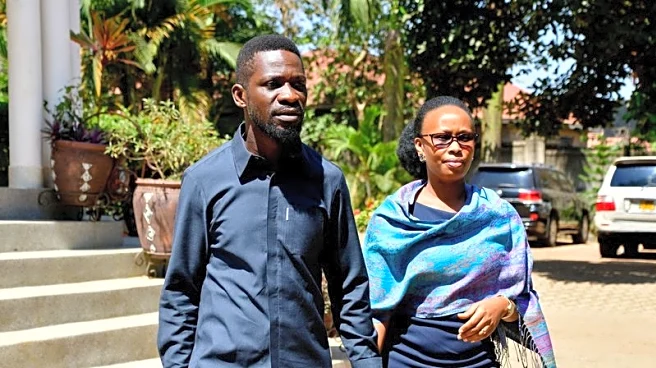Rapid Read • 9 min read
Several major law firms have declined to represent clients challenging President Trump's administration, according to reports. This trend has emerged as President Trump, in his second term, has issued executive orders targeting firms with past associations against his policies. These orders have led to the revocation of security clearances and termination of government contracts for firms involved. Notably, Winston & Strawn, a Chicago-based firm, declined to represent FBI agents involved in the investigation of the January 6 Capitol attack. The American Bar Association has also struggled to find representation due to these executive orders. The reluctance of law firms to engage in pro bono work against the administration is affecting civil rights groups, which rely heavily on such legal support.
AD
The withdrawal of major law firms from challenging President Trump's administration has significant implications for civil rights advocacy in the U.S. These firms have historically provided crucial pro bono support for cases involving environmental protections, LGBTQ+ rights, and police accountability. The reluctance to engage in such work under Trump's administration could hinder efforts to address civil rights abuses and hold the government accountable. Advocacy groups, which often lack the resources to mount major lawsuits independently, may face increased challenges in pursuing legal action. This shift could lead to fewer cases being brought forward, potentially allowing civil rights abuses to go unchecked.
The ongoing reluctance of major law firms to challenge President Trump's administration may lead to increased reliance on smaller law firms and good-government groups to fill the gap. These organizations are stepping in to file lawsuits against the administration, but they may lack the capacity to fully replace the support previously provided by Big Law. As civil rights groups continue to face hurdles in securing legal representation, the effectiveness of their advocacy efforts may be compromised. The legal community may need to explore new strategies to support civil rights cases and ensure accountability for government actions.
The situation highlights broader ethical and legal concerns regarding the influence of political power on legal representation. The executive orders targeting law firms raise questions about the independence of the legal profession and its ability to operate without political interference. The chilling effect on pro bono work could have long-term implications for the legal landscape, potentially discouraging firms from engaging in advocacy work that challenges government policies. This development underscores the need for robust legal protections to ensure that law firms can represent clients without fear of retribution.
AD
More Stories You Might Enjoy











